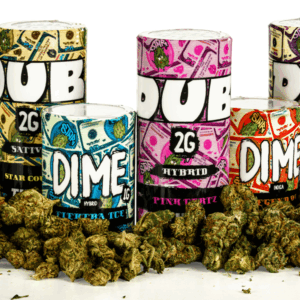The date April 20th, or 4/20, has become a symbol of cannabis culture around the world. What started as an underground celebration has grown into a globally recognized holiday, political rally, and commercial bonanza. From whispered gatherings in college dorms to massive festivals and legal industry expos, 4/20 has evolved dramatically over the years. This article explores the origins of 4/20, how the cannabis movement has grown, and where it stands today in terms of culture, legislation, and industry.
The Mysterious Origins of 4/20
The Waldos and the Birth of a Code
The most widely accepted origin story of 4/20 traces back to a group of high school students known as “The Waldos” in San Rafael, California, in 1971. The story goes that the group heard about a Coast Guard member who could no longer tend his cannabis crop. Armed with a treasure map of sorts, the Waldos agreed to meet after school at 4:20 p.m. by a statue of Louis Pasteur on their campus to search for it. They never found the hidden crop, but “420” became their shorthand for marijuana.
From Local Code to Cultural Phenomenon
The term remained relatively obscure until it reached Grateful Dead followers, particularly through connections between the Waldos and Dead insiders. By the early 1990s, High Times magazine helped bring 420 into the mainstream cannabis lexicon. It quickly became associated with marijuana use and eventually designated April 20 (4/20) as a day for cannabis celebration.

The Rise of 4/20 Celebrations
Underground Beginnings
In the 1980s and early 1990s, 4/20 was primarily observed by small groups in private settings. College students, musicians, and counterculture enthusiasts gathered discreetly to partake in cannabis use, often defying local laws. These early celebrations were acts of rebellion and solidarity in the face of intense War on Drugs policies.
From Protests to Festivals
As the legalization movement gained momentum in the late 1990s and early 2000s, 4/20 began to shift from quiet protest to open celebration. Cities like Denver, San Francisco, and Vancouver became hubs for 4/20 rallies, attracting thousands of participants. Events often featured live music, speakers, and vendors selling everything from glass pipes to CBD products.
By 2010, many 4/20 events included calls for legalization, focusing not just on celebration but also on social justice, decriminalization, and access to medical cannabis.
Legalization and the Changing Landscape
The Turning Point: Colorado and Washington
The tide began to turn significantly in 2012, when Colorado and Washington became the first U.S. states to legalize recreational cannabis. These landmark decisions marked a shift in public opinion and set the stage for broader legalization efforts across the country and beyond.
By 2025, more than 20 U.S. states have legalized recreational cannabis, and even more allow medical use. Countries like Canada and Uruguay have embraced nationwide legalization, while others explore decriminalization or limited access.
The Corporate Cannabis Era
With legalization came the rise of the cannabis industry, transforming 4/20 into not just a cultural holiday but also a retail event. Dispensaries offer “4/20 deals” much like Black Friday sales, and companies compete to launch new products around the holiday.
What was once a grassroots movement is now a multibillion-dollar industry, complete with stock market listings, branding agencies, and product placement in mainstream media.
Cannabis and Pop Culture: A Symbiotic Relationship
From Stoner Films to Prime Time
Cannabis culture has always had a strong foothold in entertainment. Films like Cheech and Chong’s Up in Smoke (1978), Half Baked (1998), and Pineapple Express (2008) romanticized the stoner lifestyle. Music, particularly in the genres of hip hop, reggae, and rock, has also celebrated cannabis use.
As societal attitudes shifted, so too did media portrayals. Modern shows like Weeds, Disjointed, and High Maintenance approach cannabis with nuance, reflecting its place in both medicinal and recreational contexts.
Influencers and Normalization
Social media has accelerated cannabis normalization. Influencers on Instagram, YouTube, and TikTok openly discuss cannabis use, share product reviews, and advocate for reform. The modern cannabis user is now just as likely to be a wellness enthusiast or entrepreneur as a college student or musician.
Social Justice and Cannabis Reform
The Legacy of the War on Drugs
Despite progress, the cannabis world is still grappling with the racial and social injustices left in the wake of prohibition. Black and brown communities, though disproportionately targeted by law enforcement for marijuana offenses, are underrepresented in the legal cannabis industry.
4/20 as a Platform for Activism
Recent 4/20 events increasingly spotlight expungement clinics, equity licensing, and reparative justice programs. Activist groups use the holiday to push for release of non-violent cannabis offenders, raise awareness about systemic bias, and ensure that marginalized communities benefit from legalization.
Social Equity Programs
Cities like Los Angeles, Oakland, and New York have implemented social equity programs designed to assist those historically affected by cannabis criminalization. These programs offer priority licensing, financial support, and training for aspiring cannabis entrepreneurs.
The Future of 4/20: Where Do We Go From Here?
A Global Celebration
With growing legalization worldwide, 4/20 is no longer confined to North America. Countries like Germany, Thailand, and South Africa are exploring reform, while cannabis tourism booms in places like Amsterdam, Barcelona, and Jamaica.
The holiday has become a global expression of cannabis freedom, drawing people together across cultures, languages, and legal systems.
Balancing Celebration with Responsibility
As the cannabis industry matures, there’s a growing call to maintain a balanced, ethical approach to 4/20. While celebrations continue, there’s also increasing emphasis on safe consumption, education, and community reinvestment.
Cannabis advocates hope to avoid the commercialization pitfalls seen in other cultural holidays by ensuring 4/20 remains rooted in its activist origins.
Conclusion
From a secret code among high school friends to an internationally celebrated holiday and a billion-dollar retail event, 4/20 has undergone a radical transformation. It now stands at the intersection of culture, commerce, activism, and legislation.
As legalization spreads and cannabis becomes more mainstream, 4/20 is likely to continue evolving—celebrated not just as a day of consumption, but also as a symbol of progress, healing, and social change. Whether you’re lighting up in celebration or marching for justice, 4/20 remains a powerful reminder of how far cannabis culture has come—and how much further it still has to go.










